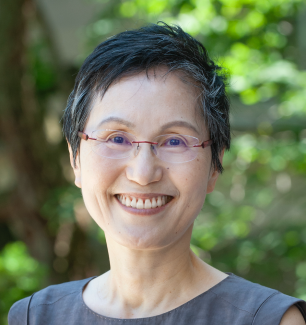Event
From the Invisible to the Visible: Food and Life Politics in Global Korea
Distinguished East Asia Lecture
Hyaeweol Choi, University of Iowa

Food serves as a junction for a vast array of entities, structures and practices, spanning from microorganisms to national politics, the global economy, and the environment. Food also helps us understand the mobility of people, ideas, and materials across time and space. Food cultures have been shaped and transformed by this mobility and the particular historical contexts in which they evolve. In this presentation, I take food as an entry for understanding gender history and culture, with a particular focus on the politics of domesticity. In rethinking the connections between food and gender politics, I eschew the formal domains of law, governance, and party affiliation. Instead, I take ordinary, everyday practices as a contested site of politics where issues of gender, class, race, generation, and the environment intersect. In this presentation, I focus specifically on the gendered history of home cooking and street food in South Korea, examining how these practices have evolved in response to the forces of war, industrialization and urbanization, and nation branding in the context of globalization. I present a series of food-related vignettes, as experienced and narrated by ordinary women, which offer new insights into existing and emerging gender dynamics in the context of geopolitical, economic, and cultural changes. In doing so, I aim to illustrate how the most intimate and mundane practices of cooking and eating provide a useful vantage point from which one can examine the confluence of the private, the public, and the global.
Hyaeweol Choi is the Stanley Family and Korea Foundation Chair in Korean Studies at the University of Iowa. She is also President of the Association for Asian Studies (2024-25). Her research interests are in the areas of gender, empire, modernity, religion, food and body, and transnational history. She is the author of Gender Politics at Home and Abroad: Protestant Modernity in Colonial-Era Korea (2020), New Women in Colonial Korea: A Sourcebook (2013), and Gender and Mission Encounters: New Women, Old Ways (2009). She is also a co-author of Gender in Modern East Asia: An Integrated History (2016), and a co-editor of Divine Domesticities: Christian Paradoxes in Asia and the Pacific (2014). Her current research project, entitled “Food and the Life Politics of Domesticity in Transpacific Korea,” examines the domestic as the confluence of the local, public, global and environmental structures, aiming to shed new light on everyday gender politics and performances through food ethics and practices in the current era of excess, inequality, and ecological crisis.
*co-sponsored by the James Joo-Jin Kim Center for Korean Studies